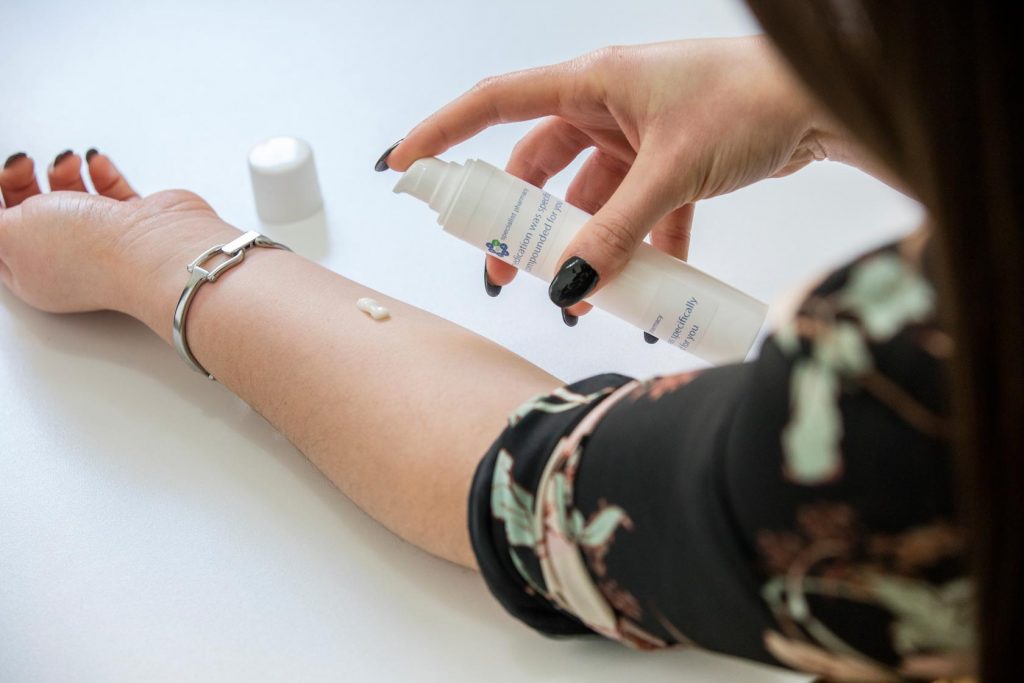Progesterone is a natural hormone made by women during the second half of their menstrual cycle, known as the luteal phase. It also plays an important role in pregnancy, as it is produced by the placenta to support a healthy pregnancy.
What is Progesterone and What Does It Do?
Progesterone has a large number of effects on the body, including:
- helping to reduce hot flushes during menopause
- improving cholesterol levels
- maintaining the secretory endometrium
- protecting against breast fibrocystic disease
- helping the body use fat for energy
- it is a natural diuretic
- it is a natural antidepressant
- helping with thyroid function
- helping with blood sugar levels
- normalizes zinc and copper levels
- restoring cell oxygen levels
- protecting against endometrial cancer
- restoring libido
- protects against endometrial cancer
- stimulates osteoblast-mediated bone building
- it is necessary for the survival of an embryo and foetus during pregnancy
- improves energy, stamina and endurance
- helps maintain muscle mass
How Progesterone Changes Over Time
One life stage where this hormone is essential is pregnancy, as it prepares the lining of the uterus for implantation of a fertilised egg and then later helps to maintain the embryo during pregnancy. Imbalances or low levels caused by anovulatory cycles are associated with a variety of problems, including:
- endometriosis
- amenorrhea
- infertility
- post-natal depression
- pre-menstrual tension
Once a woman starts going through menopause, progesterone production slows down prior to a decline in estrogen production.
What are the Symptoms of Low Progesterone?
Progesterone is a natural calming hormone that affects your mood and menstrual cycle. Low progesterone may cause:
● Mood changes like anxiety and irritability
● Irregular, heavy periods or spotting
● Trouble sleeping or insomnia
● Breast tenderness, bloating, and headaches
● Difficulty conceiving or maintaining a pregnancy
Any of these may be related to low progesterone levels.
Progesterone Treatment and Bioidentical Hormone Replacement Therapy (BHRT)
Progesterone levels decline faster than estrogen levels during peri-menopause and menopause, resulting in irregular cycles, heavy periods, headaches and mood swings. As a result, progesterone treatment is often preferred over estrogen treatment as the initial therapy for menopausal symptoms.
There is a misconception that women who have had a hysterectomy do not need progesterone. Progesterone balances the effects of estrogen in many of the body’s tissues, and therefore, the two hormones should be prescribed together. Progesterone treatment in the form of hormone therapy has been shown to be beneficial for the treatment of PCOS and endometriosis.
Frequently Asked Questions About Progesterone
.
How does progesterone interact with other hormones like estrogen?
Progesterone works alongside estrogen, but they have opposite effects. estrogen stimulates the growth and multiplication of cells, while progesterone helps slow down this growth and encourages cells to mature and specialise. Any cell that responds to estrogen also has receptors for progesterone, which helps balance estrogen’s effects.
How does progesterone affect the menstrual cycle and fertility?
After ovulation occurs, progesterone is produced by the corpus luteum in the ovaries. Its role is to thicken the endometrial lining in preparation for a
fertilised egg and enable the implantation of the embryo. This is why we need good levels of luteal phase progesterone, as it is critical in both providing optimal fertility conditions and preventing miscarriage.
At what age do I need to start thinking about progesterone hormone treatment?
There is no fixed age to begin progesterone treatment. It really depends on your individual symptoms and hormonal profile. That said, many women start considering treatment in their late-30s to mid-40s, when perimenopause begins. This is the transitional phase before menopause when progesterone levels often start to decline, even if your periods are still regular.
Is bioidentical progesterone the same as synthetic progestins?
No. Bioidentical progesterone is identical in chemical structure to the body’s own progesterone and is therefore better tolerated and has fewer side effects. Synthetic progestins have a different structure and may cause more side effects. At the Marion Gluck Clinic, we use only bioidentical progesterone to provide a more natural form of hormone treatment.
Are there natural ways to boost progesterone and how effective are they compared to hormone therapy?
Lifestyle changes like managing stress, getting enough sleep, maintaining a healthy weight, and eating a balanced diet help support your body’s natural progesterone production. However, natural methods may not be enough if you have a significant hormone imbalance. Hormone therapy is the most effective way to restore balance and relieve your symptoms.
When should you get your progesterone levels tested?
You might consider testing your progesterone levels if you have irregular periods or symptoms like mood changes, fatigue, or other signs of low progesterone. If your cycle is about 28 days, the best time to check is around day 21, when progesterone should be at its highest. Conditions such as PMS, PMDD, or PCOS can also affect your progesterone levels.
If you are experiencing symptoms of low progesterone and are looking for bioidentical progesterone treatment that is personalised to you, then book an online consultation now.




